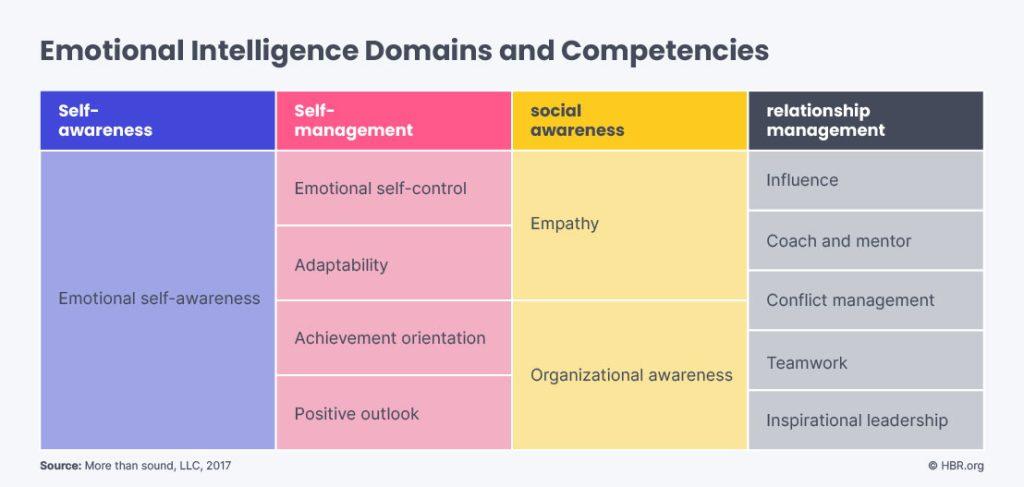Have you ever noticed people who are able to stay calm under stress, and manage their time at work with a masterful level of expertise, all while thriving within their roles? These individuals may be aspirational to some, but all employees within an organization have the potential to harness this power with self-management.
But why is self-management important?
In the face of mounting pressure and evolving work dynamics, some employees struggle to remain productive, stay calm under stress, and grow within their roles. This could largely be due to a lack of proper self-management techniques.
Fortunately, every employee has the potential to learn self-management in the workplace, improving their personal effectiveness and overall job satisfaction. The self-management definition encapsulates the abilities that allow employees to control their thoughts and behaviors to achieve work goals, overcome challenges, and deliver exceptional results.This article delves into the significance of self-management and offers valuable insights on how to improve self-management skills. By the conclusion, you will have gained a comprehensive understanding of self-management and acquired practical knowledge on cultivating it effectively within your professional life.
Table of contents
What is self-management?
Self-management examples
Why are self-management skills important?
What is the relationship between self-awareness and self-management skills?
The relationship between self-awareness, self-management, and self-defeating behaviors
How can we evaluate self-management skills?
What support can employers give to support self-management?
How can employees develop self-management skills?
What is self-management?
Let’s delve deeper into this essential quality reshaping how we approach productivity, career growth, and job satisfaction. Here, we unpack the question — what is self-management?
In a work context, self-management skills can be thought of as the capabilities that enable employees to control their thoughts and behaviors in the service of achieving critical work goals like acquiring functional expertise, working well with others, and delivering business results. An employee with self-management skills is capable of understanding what they’re doing that works—and how to make the adjustments required to fix what’s not working. As such, effective self-management strategies are critical to success in a modern-day work environment.
This quality presents an action-oriented approach that steadily transforms our perception of productivity, career development, and overall work satisfaction. It’s the cornerstone for impacting an individual’s work-life balance and, by extension, their mental health. As we delve into remote and hybrid workforces, understanding the importance of self-management becomes even more vital.
As workplace norms continue to evolve, the phrase “self-management” is gaining traction among HR professionals. Occasionally referred to as “self-leadership” or “managing yourself,” self-management has become increasingly important for leaders to address, especially those overseeing remote and hybrid workforces. With less facetime and direct access to their employees throughout the day, managers are eager to ensure that their employees are productive, growing in their roles, and enjoying what they do.
Self-Management: The art of regulating your thoughts, feelings, and actions within the workplace in order to be a more successful employee overall

Self-Management Skills Examples
Successful self-management in the workplace involves carefully cultivating specific soft skills over time. These skills, crucial to personal and professional growth, offer clear examples of self-management in action.
Examples of self-management skills include adept time management, the ability to communicate clearly, and efficient problem-solving. Stress management, quick and effective decision-making, and comprehensive organizational skills also fit this category.
However, being skilled at monitoring your thoughts, feelings, and actions in the workplace comes with time, intention, and practice. These soft skills are critical to effective self-management.
Some self-management skills examples include:
- Time management: Can you complete your tasks within a specified time frame?
- Communicating clearly: Can you communicate effectively with your coworkers, customers, and stakeholders?
- Problem-solving: How easily are you able to overcome challenges and fix problems?
- Stress management: Do you stay calm under pressure, or are you more reactive?
- Decision making: Can you make a decision quickly and effectively, weighing all options?
- Organizational skills: Are you able to prioritize jobs to do well, meet deadlines, and set goals based on the big picture?
- Self-confidence: Do you feel confident about your knowledge, skills, and abilities?
Why are self-management skills important?
The question “Why is self-management important” might naturally arise when considering its role in the workplace. The answer lies in its tangible benefits, as it is a vital advantage for both employees and organizations.
When an organization emphasizes self-management, everyone wins. Let’s explore these specific benefits and understand their crucial role in shaping a productive work environment:
Benefits of self-management for employers:
- Bolsters job satisfaction and engagement amongst employees
- Increases productivity within teams
- Improves intra-team communication
- Builds trust with your employees, which can lead to reduced attrition
- Frees up managers to focus on strategy-building and development work
Benefits of self-management for employees:
- Builds trust with employers, stakeholders, customers, and teammates
- Improves performance overall
- Clarifies your goals and reach them more quickly
- Increases job satisfaction
Although working remotely has become the new normal, many organizations have struggled to manage, develop, and retain talent in this new environment — as evidenced by The Great Resignation. Emphasizing self-management gives organizations a leg up because it shows employees that you care about them as individuals and trust them to be responsible and productive, regardless of where, when, and how they work.
As we look to the rest of 2022 and beyond, it’s essential that employers understand how to support their employees with their self-management, measure where an employee is already at in terms of these skills, and help employees learn to manage themselves more effectively.
What is the relationship between self-awareness and self-management?
Before an employee can learn to self-manage, they first need to be self-aware.
The idea of being self-aware first entered the zeitgeist in the early 1970s, as a result of research conducted by social psychologists Shelley Duval and Robert Wicklund. Duval and Wickland referred to self-awareness as “the ability to recognize one’s existence,” and called it one of the most important variables in psychology. “Without self-awareness,” they wrote, “people would be unable to self-reflect or recognize differences.” In short, self-awareness allows us to see ourselves clearly, to recognize our thoughts, behaviors, and actions, and to consciously create new patterns.
In a recent article in Harvard Business Review, executive coach Jennifer Porter notes that being effective at our jobs requires self-awareness—that is, an understanding of our strengths, weaknesses, feelings, thoughts, and values and the way they affect the people around us. But that’s only half of the story. She writes, “Self-awareness is useless without an equally important skill: self-management. Self-management is a conscious choice to resist a preference or habit, and instead, demonstrate a more productive behavior.”
As such, the link between self-awareness and self-management is key; one can’t exist without the other. According to a recent article in The Journal of Management Education, self-awareness is a skill that we can learn and sharpen with constant self-evaluation, a process-oriented mindset, and attention.
Becoming self-aware is also a process; the skill is developed over time and requires practice, just like self-management does. And since becoming aware of one’s thoughts, feelings, or habits happens in a fleeting moment, we need to consciously bring our attention back to our thoughts in order to truly be aware of them.
The relationship between self-awareness, self-management, and self-defeating behaviors
Once an individual has strengthened their self-awareness muscles, they’ll be better able to notice their self-defeating behaviors. Self-defeating behavior is simply a habit that we can change. Common self-defeating behaviors include:
- Procrastination
- Refusal to delegate
- Not listening
- Defensiveness
- People pleasing
- Perfectionism
It’s only once we acknowledge these behaviors as a problem that we can start proactively changing them and moving forward.
Self-management is the antidote to self-defeating behaviors (SDB), and self-awareness is the path to getting there.

How can we evaluate self-management skills?
Assessments can be an extremely helpful tool in building self-awareness in employees and helping them build up self-management skills.
Following the results of these assessments, a natural course of action is to use the outcomes to understand how to develop management skills. Having the data is one part of the process. The other part is about identifying areas of improvement, charting a growth course, and taking actionable steps toward it. This is not just about working on areas that require more attention. It is also about bolstering strengths and sharpening key skill areas critical for effective self-management.
Jessica Haig, Director of Applied Science and Culture at Wonderlic, notes that many ways of measuring self-management tie back to emotional intelligence. This is a quality that the Harvard Business Review defines as “comprised of self-awareness, self-management, social awareness, and relationship management.”

There are two primary ways to understand and measure emotional intelligence (EI). The first is ability-based, in which EI is viewed as the ability to know what to do in a situation and assessed with a battery of questions with right or wrong answers. The second is personality-based, in which EI is understood as having behavioral tendencies like emotional self-control, adaptability, achievement orientation, and positive outlook, which are closely mirrored by what’s commonly known as The Big Five personality traits: extraversion, agreeableness, openness, conscientiousness, and neuroticism. In this model, EI is measured with an agreement scale, in which people are asked to what degree they agree or disagree with various statements.
Cognitive ability and personality assessments are able to help gauge both models of EI. Subsequently, they provide a clearer understanding of an employee’s ability to self-manage.
Aspects of self-management that can be measured include:
- Flexibility
- Comfort with change adoption
- Composure
- Results focus
What support can employers give to support self-management?
Although self-management is an individual pursuit, organizations can — and should — support the development of these skills. Here’s how:
1. Focus on enablement rather than control
Whether someone is able to successfully self-manage is often a function of the style of their direct manager. Is the manager meeting the employee where they are? One of the biggest things an organization can do to help people become better at self-management is to focus on enablement rather than control.
Kati Lechner, Director of Talent Operations and People Strategies at Wonderlic, elaborates:
“When you’re first learning how to do something, you need to be told step-by-step how to do it. As you build confidence doing it, you need less direction and more supportive behaviors, encouraging you that you’re on the right track. Oftentimes it’s a mismatch of what the employee needs and what the manager is delivering that leads to overwhelm, frustration, or a feeling of being micromanaged. Great managers ask questions and listen to diagnose what their employees need, and work to ensure the people on their team have the tools (including knowledge, skills, and abilities) and the access to complete their work. Unblocking and connecting are two things we often need managers to do, and an organization full of managers who can focus in those areas is likely to have more employees who are experts at self-management.”
“Unblocking and connecting are two of the things we often need managers to do, and an organization full of managers who can focus in those areas is likely to have more employees who are experts at self-management.”

2. Create clear objectives and expectations
In addition to management support, employees need clear objectives and expectations in order to develop strong self-management skills. As Lechner put it, “If I don’t know what results I’m supposed to deliver on, how can I possibly deliver them?”
3. Utilize development tools to create transparency and track progress
Employee development tools can significantly help create a clear path forward for employees by providing them with clear goals, expectations, and a roadmap for growth.
4. Create a culture of psychological safety
Finally, employees are more likely to take the small risks required to build self-management skills if they feel psychologically safe. Lechner believes that it is critical for all of these functions to link together. If there are no clear expectations, employees struggle to feel safe. If an employee does not feel safe, they may not try new things, which can stifle growth.
“We’ve all seen people who are great but land in a place of ‘malicious compliance.’ Often it’s that they don’t have the certainty or autonomy they need to truly manage themselves.”
How can employees develop self-management skills?
In her HBR article, How to Move from Self-Awareness to Self-Improvement, executive coach Jennifer Porter writes that self-management can be difficult. “The most productive behaviors are often not aligned with our habits and preferences.” As such, employers need to create supportive environments where these skills can be nurtured and develop over time. On the employee side, self-management skills can be developed in three key ways.
Practice new behaviors
Adjusting our behavior takes awareness, thoughtfulness, and repetition. Our habits and behaviors are ingrained in our minds with deep neural pathways created over time. These neural pathways make some habits and behaviors automatic. So to create new pathways and change, we need to consciously and consistently practice our new behaviors.
Make time for reflection
Employees can work with their managers to reflect on where they’ve been, where they are, and where they’d like to go. Reflecting on past performance, growth opportunities, and goals allows us to create a path forward. Self-management gives us the tools to get there. This ties back into the self-awareness piece of self-management. We need to be aware of our thoughts and behaviors in order to change them. These changes can take time, but due to the power of neuroplasticity, we know that change is possible.
Track your progress
Creating transparency by providing a way to track goals helps both managers and employees to align and track progress. Without a way to track our progress, it’s impossible to know how close we are to our goals.
Be present, be self-aware, identify a range of behavioral choices, and be intentional about choosing behaviors that are believed to be the most effective.
– Harvard Business Review
Summary
Reaffirming the question, “Why is self-management important” brings us to the crucial takeaway from our discussion.
Strong self-management starts with understanding where you’re at, noticing any self-defeating behaviors that may get in your way, creating a plan for where you want to go — and tracking your progress on the way there.
Glossary
The Five Factor Model*: Five measurable traits that are believed to be the basic tenants of personality, including openness, agreeableness, extraversion, conscientiousness, and neuroticism.
Emotional intelligence: the ability to perceive, use, understand, manage, and handle emotions.
Neural pathways: Neural pathways in the brain help to create memories, help us to learn, and help us to create patterns and habits. Our brains are constantly creating new neural pathways, which allow us to create new habits, patterns, and changes.
Self-awareness: the experience of one’s own personality and individuality. Consciousness allows us to be aware of ourselves, and self-awareness takes it a step further; it’s the awareness of those thoughts related to our awareness.
Self-defeating behaviors: behaviors that negatively affect one’s ability to reach goals. These can include negative self-talk, procrastination, and perfectionism
Self–management: the art of regulating your thoughts, feelings, and actions within the workplace in order to be a more successful employee overall.
Psychological safety: the feeling of safety that is created when employees feel comfortable asking questions, asking for help, and challenging the status quo without fear of negative repercussions
*Also known as The Big Five, OCEAN and CANOE






